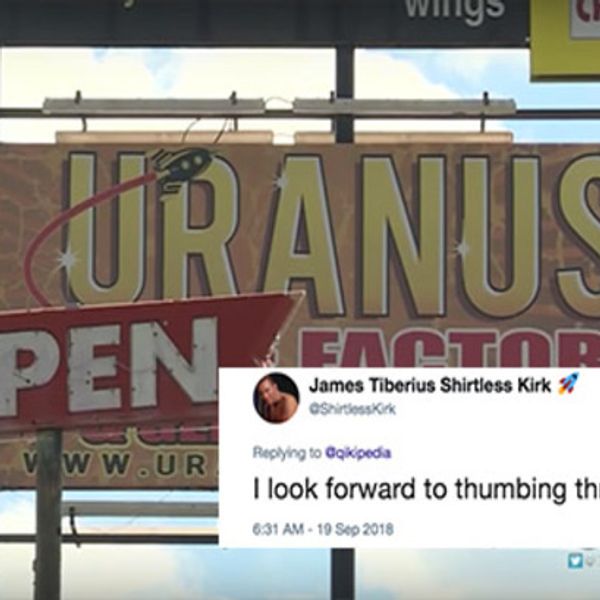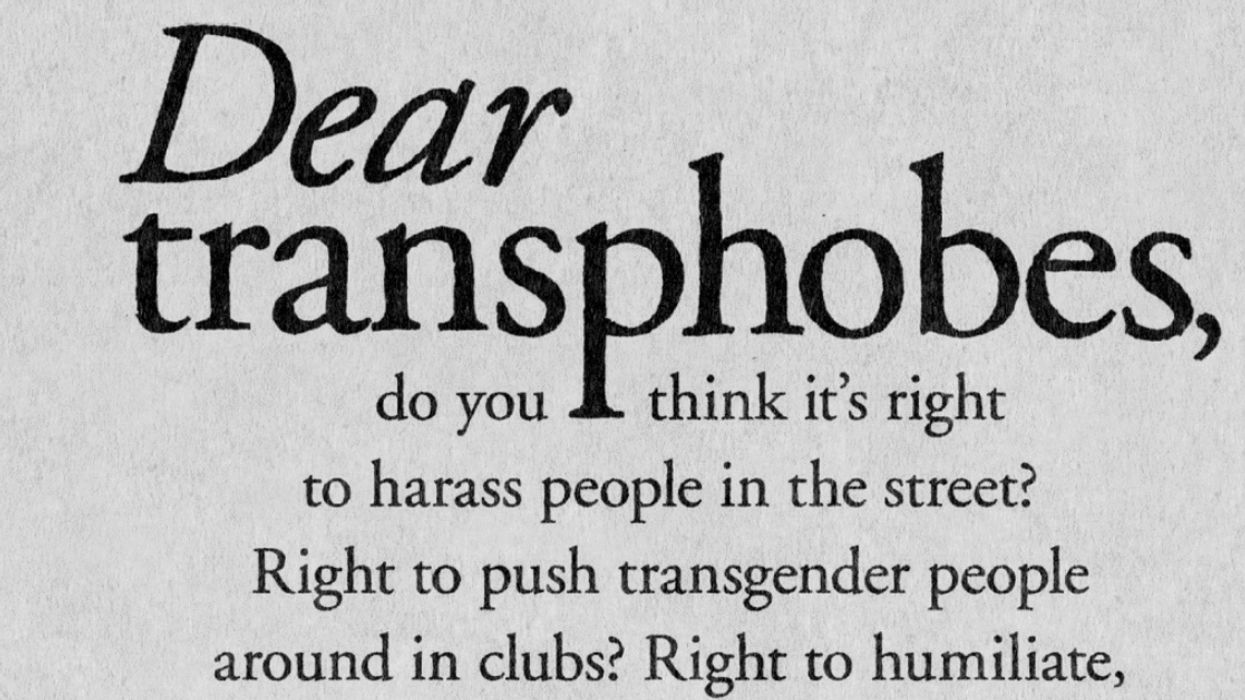August, 2003, LOS ANGELES - Winston Churchill said of history, "the farther back I look, the farther forward I can see." He believed that the lessons learned from history could prepare us to meet the challenges that we face in the future. Last month, I literally lived the value of Churchill's wisdom with a trip to Williamsburg, Virginia.
As if the 'transporter' from Star Trek had 'beamed' me back in time, I was living in the year 1774, just before the War for Independence from the onerous rule of the English King, George III. As a historic preservationist, I'd always wanted to visit Williamsburg, the colonial capital of Virginia, famous for its historic buildings that had been preserved, restored or recreated to pre-revolutionary times. I'd read that there would be guides authentically dressed to the period. However, I didn't realize how complete that experience back in time would be.
 The buildings were magnificently restored. What was truly impressive was the recreation of the context of the times. At the very center of Williamsburg was the Governor's Palace - as it was called. It was a substantial mansion but certainly not a palace in the grand European sense. But to the colonists, this imposing residence was the very symbol of opulence and the King's might. The houses of even the wealthy colonials seemed modest in contrast. Anchoring both ends of the main street, Duke of Gloucester, were the two significant structures of the capital, the Wren Building of the College of William and Mary, the seat of learning, at one end and the Capitol with the House of Burgesses, the seat of governance, at the other end. In the House of Burgesses, we sat in the seats that the Virginia representatives sat as we listened to the authentically clad historic interpreter recount all that transpired in this great hall. She pointed to a youngster and said that he may be sitting in the very seat from which Patrick Henry thundered against the King's taxes. He giggled self-consciously. She pointed to another teen-ager and said that she could be seated where Thomas Jefferson sat. She touched the wood of her seat with renewed awe. The docent personalized the past. She made history vibrantly real to a group of twenty-first century tourists. As the crowd moved on, I lingered in the great hall admiring the architecture. The docent approached me smiling. This faithful representative of history clad in colonial garb then, unexpectedly, broke the time barrier. Very discreetly, she whispered, "I have been a life-long Star Trek fans and was delighted to see you in the group. Would it be possible to get your autograph?" It was charming. I, who had depicted the future in fiction, connected with this wonderful spokesperson for the past. Arleen Donikowsky is a woman who spans the centuries with equal devotion to the past and the future.
The buildings were magnificently restored. What was truly impressive was the recreation of the context of the times. At the very center of Williamsburg was the Governor's Palace - as it was called. It was a substantial mansion but certainly not a palace in the grand European sense. But to the colonists, this imposing residence was the very symbol of opulence and the King's might. The houses of even the wealthy colonials seemed modest in contrast. Anchoring both ends of the main street, Duke of Gloucester, were the two significant structures of the capital, the Wren Building of the College of William and Mary, the seat of learning, at one end and the Capitol with the House of Burgesses, the seat of governance, at the other end. In the House of Burgesses, we sat in the seats that the Virginia representatives sat as we listened to the authentically clad historic interpreter recount all that transpired in this great hall. She pointed to a youngster and said that he may be sitting in the very seat from which Patrick Henry thundered against the King's taxes. He giggled self-consciously. She pointed to another teen-ager and said that she could be seated where Thomas Jefferson sat. She touched the wood of her seat with renewed awe. The docent personalized the past. She made history vibrantly real to a group of twenty-first century tourists. As the crowd moved on, I lingered in the great hall admiring the architecture. The docent approached me smiling. This faithful representative of history clad in colonial garb then, unexpectedly, broke the time barrier. Very discreetly, she whispered, "I have been a life-long Star Trek fans and was delighted to see you in the group. Would it be possible to get your autograph?" It was charming. I, who had depicted the future in fiction, connected with this wonderful spokesperson for the past. Arleen Donikowsky is a woman who spans the centuries with equal devotion to the past and the future.
There were no cars in the historic district. If one didn't walk, there were horse drawn carriages for those who were willing to pay. Most people walked - as did most people then. When one talked to the people dressed in colonial garb, they talked as people of their time. The shocking news that they shared with us was the report of some up in Boston who had dressed up as Indians and dumped English tea into Boston Harbor as a protest against the King's unjust tax. The people of Williamsburg certainly shared the sense of outrage against the tax. However, dumping the tea into the harbor, they thought, was rather "extreme." At noon, there was a fife and drum parade down Duke of Gloucester Street and we got a good sense of the martial spirit of the colonists. There were people dressed as colonials who spoke with Scottish or Hungarian accents because they had recently arrived as immigrants to America - as indeed there were immigrants back then. When we toured the houses of the wealthy, there were black slaves that did the cooking and cleaning. But they told us of others who had been freed and worked as blacksmiths or craftsmen. We visited a carpenter's workshop where furniture for the town was made in the traditional way. In this city of many races, backgrounds and social station, there was warmth, civility, graciousness, and a sense of community. We had dinner in historic eating establishments like the 18th century chophouse, King's Arm Tavern or Christiana Campbell's Tavern, which was George Washington's favorite, where menus offered traditional fare of the time. Costumed musicians playing the lute or other quaint period instruments provided the entertainment as we dined.
 The three day visit was truly "beaming back" into history. The sights, sounds, tastes, and spirit of colonial Williamsburg surrounded us completely. We got a real sense of the colonial spirit of mutual caring when we were caught in a sudden summer storm one evening just as we were leaving the historic district. Sopping wet, we were dashing back to our hotel when suddenly a lone s.u.v. came driving down the road. The driver opened the car window and shouted, "Here, use these," threw out umbrellas and drove off - no charge, no request for their return, just a simple gesture of kindness. We accepted the umbrellas with drenched gratitude. The colonial spirit of mutual help carried over into the 21st century.
The three day visit was truly "beaming back" into history. The sights, sounds, tastes, and spirit of colonial Williamsburg surrounded us completely. We got a real sense of the colonial spirit of mutual caring when we were caught in a sudden summer storm one evening just as we were leaving the historic district. Sopping wet, we were dashing back to our hotel when suddenly a lone s.u.v. came driving down the road. The driver opened the car window and shouted, "Here, use these," threw out umbrellas and drove off - no charge, no request for their return, just a simple gesture of kindness. We accepted the umbrellas with drenched gratitude. The colonial spirit of mutual help carried over into the 21st century.
From my visit to Williamsburg, I got a renewed understanding of the daily struggles and challenges faced by the Virginia colonists. Whatever their station, everyone had a role to fulfill and a responsibility to the community. There was a spirit of interdependence and mutual assistance and, at the same time, a pressing hunger for justice. The leaders then were extraordinary men of principal and vision. American democracy was born out of this mix. The ringing words, "We hold these truths to be self evident, that all men are created equal" were articulated out of the fusion of the spirit and events of these times. Yes, they lived with slavery. Yes, only educated landowners could vote. Yes, the women had no role in leadership. Yes, there were inconsistencies with the realities of the times. Yet, out of those societal discrepancies rose the vision of a nation of shining ideals, the framework for America. Our democracy is a continuing work in progress - and through the years, we have been making progress.
So, as a Californian, I am troubled by the mockery that is being made of our democratic electoral procedure by the irresponsibility of the recall of a recently re-elected governor. The recall is an important citizens' tool in a democracy to be used, as the constitution states, in cases of "malfeasance in office." It is not a tool to be used by bad losers of a legitimate election. I did not vote for the governor. I do not like him despite the fact that he and I are of the same political party. However, in a democracy, we accept the will of the majority and prepare for the next election to get rid of a bad politician. Just because you lost an election, that does not mean the losing minority has the right to recall him eight months later. I do not like President George Bush. I didn't vote for him. I feel he has been a disaster for the nation and the economy. He didn't even win the popular vote. However, the Supreme Court in a lawful procedure appointed him. Therefore, I have accepted that fact as part of the process and have waited to work for his replacement with the next election.
It is rather ironic that I am advocating the replacement of President Bush because last April I played a member of his cabinet, Secretary of Transportation Norman Mineta, in a television film which will be aired on Showtime cable channel on Sunday evening, September 7. It is titled, "DC 9/11: Time of Crisis," and is about the Bush administration during the days immediately following the horrors of September 11, 2001. My friend, Timothy Bottoms, plays President Bush. It is a tense drama of the response of the Bush administration to the trauma of horrific events. I hope you will all be able to catch it.
Scotland Tackles Transphobia and Homophobia In Brilliant New Billboard Ads ❤️
The Scottish government has had enough of hate crimes and is moving forward with a gutsy campaign.
According to Pink News, Scotland is launching a new initiative to combat intolerance with messages respectively addressing "bigots," "disablists," "homophobes," "racists," and "transphobes" in a series of ads circulating across the country.
Each message is signed on behalf of Scotland.
The campaign is part of the Scottish government's One Scotland project in an effort to reduce hate crime.
One letter reads:
"Dear transphobes, do you think it's right to harass people in the street? Right to push transgender people around in clubs? Right to humiliate, intimidate and threaten them online? Well we don't."
"That's why if we see you doing harm, we're reporting you. We believe people should be allowed to be themselves. Except if they're spreading hate."
"Yours, Scotland."
In another letter, the country says it has a "phobia" of homophobic behavior.
"If you torment people because of who they love, shout word that we are not going to write, or use violence because you don't like who someone is holding hands with, you should be worried."
"If we see or hear your abuse, we're calling the police. That's because love lives in this country, not hate."
"Yours, Scotland."
One Scotland's website describes the organization as one that aims to continue building an inclusive society while recognizing the significant strides made so far towards equality.
"One Scotland embodies the inclusive society we want in Scotland, where equality and human rights are respected and every individual and minority group feels valued."
The website defines hate crimes as abuse that "can be verbal or physical and has hugely damaging effects on the victims, their families and communities, and we all must play our part to challenge it."
"Police Scotland takes hate crime very seriously. In the last year there were over 5,300 charges of hate crime reported to the Procurator Fiscal in Scotland1."
"However, there are many more incidents that go unreported. We all have a responsibility to report hate crime if we witness it – it's the only way we can challenge it, and put an end to it for good."
Justice minister Humza Yousaf is familiar with being a victim of a bigotry and is encouraging people to call out and report any incidents involving harassment.
"As somebody who has faced Islamaphobic and racial abuse over the years, I know how upsetting being a victim of hate can be. Hate crime and prejudice are completely unacceptable and we are absolutely committed to tackling it."
"We all have a role to play in stamping out prejudice and I would ask anyone who witnesses a hate crime to play their part and report it. Justice agencies such the police and Crown Office will deal sensitively with reports made and people should have confidence in how they will be treated. Last year there were over 5,300 charges of hate crime reported to the Procurator Fiscal in Scotland but there are still many incidents that are going unreported."
Henrietta Mochrie identifies as transgender and has been the victim of repeated harassment and abuse. She emphasized the importance of speaking out against the hatred.
"I'll often get street harassment, sometimes this has escalated to the point where I've been followed by people shouting abuse at me, just because of who I am."
"It makes me feel really down and scared to leave the house. It's important that if you witness hate crime that you report it to take a stand against hate."
One Scotland's ad campaign officially launched on Wednesday.
Hopefully, it won't take too long before other nations follow suit in this bold, yet necessary fight for equality.
H/T - OneScotland, PinkNews, Twitter
Feminists Slam Man Telling Them They Can't Have Both Chivalry And Equality
A man on Twitter informed feminists they had to choose between chivalry and equality.
He was promptly raked over the coals for even assuming an antiquated concept would be considered as a viable option.
Twitter user @Rich_Cooper stated:
"Dear feminists. You either get equality or chivalry. You can't have both."
One user responded:
"I'll take equality. I don't need special treatment."
Cooper's rhetorical question did not go over so well. Both women and men expressed their disdain for his message.
One male user observed that chivalry was irrelevant and treating everyone with kindness and respect was compulsory.
"What people care about is caring, empathic [sic], considerate, thoughtful people, NOT whether THEIR door is held for them or THEIR meal is paid for them."
"Are there gender stereotypes in het[erosexual] dating? Sure. But that's separate from being a warm, giving, caring, grounded person."
Some women got right down to the point.
The notion of chivalry and equality are mutually exclusive and not a lot of people thought it was a major priority for feminists.
Common courtesy is not chivalry.
This user pointed out the fact that chivalry stems from a history of men outdoing other men. The concept had very little to do with women.
"Chivalry is a medieval concept of men dressing to impress other men. It has little to do with equality."
"Some men were on top, other men were beneath them. Historically, women were rarely invited into the process."
Neil Bradley described the outdated concept of chivalry as one that implies men being superior to women in a September 8, 2017, article for Medium publications.
"Examples: opening the door for a woman, paying for a woman's meal, gesturing for a woman to go first. The justification is either that women are not physically as strong (to open the door), able to provide (pay for their own meal), or are more deserving of compassion than men (allowing women to go first)."
Bradley also added that he wants to treat others the way he wants to be treated and asked if that approach should be motivated by chivalry or equality.
"If the genders are to be considered equal and treated equally, how a man treats a woman will essentially be the same as how a man treats a man."
"The obligation to open the door, pay for the meal, and let women go first vanishes. Men do not do this to other men, therefore why do it for women?"
His final take was that the two concepts can't co-exist. Either one is chivalrous or treats everyone as equals.
At the end of the day, people were happy to show chivalry the door.
H/T - GettyImages, Twitter, Indy100, Medium
Woman Was Fired For Refusing To Wear A Bra At Work—And Now She's Suing
Christina Schell, from Alberta, Canada, stopped wearing bras three years ago citing health reasons.
While Schell did not specify the health reasons, she did state she finds them to be "horrible."
But after her refusal to sign or adhere to a new enforced dress code policy to wear a bra or tank top under her work shirt at a golf course grill where she worked, Schell was promptly fired.
Now, the 25-year-old has filed a human rights violation against the Osoyoos Golf Club, Osoyoos, in British Columbia, Canada.
Schell said:
"I don't think any other human being should be able to dictate another person's undergarments."
When she asked the general manager, Doug Robb, why she had to comply, the manager told her the mandate was for her protection.
Robb allegedly said:
"I know what happens in golf clubs when alcohol's involved."
After losing her job, she brought the case to the British Columbia Human Rights Tribunal and told them the club's dress code was discriminatory because the rule didn't apply towards male employees.
Schell told CBC:
"It's gender-based and that's why it's a human rights issue. I have nipples and so do the men."
David Brown, an employment lawyer in Kelowna, BC, said gender-specific dress codes could be viewed as discriminatory under the BC Human Rights Code.
He stated:
"It's an interesting question as to whether or not an employer can dictate the underwear that women can wear, but they don't say anything about the underwear that men can wear, and does that create an adverse impact on the individual?"
Brown added:
"If this policy is found to be discrimination, the next question is does the employer have a bonafide occupational requirement to essentially impose this on the individual?"
"I'm kind of scratching my head as to what that occupational requirement would be."
As for the tank top option, due to working under oftentimes extreme heat serving tables outsides, Schell did not want to wear another layer of clothes just because of her gender.
Schell said:
"It was absurd. Why do you get to dictate what's underneath my clothes?"
Employment lawyer Nadia Zaman told CBC that the club can enforce a gender-specific policy as they deem necessary as long as the establishment can prove it is for the occupational safety of its workers.
But the attorney questioned if forcing female employees to wear a bra was applicable in this case.
Zaman stated:
"If they simply require that female employees wear a bra but then they don't have a similar requirement for males, and they can't really justify that … then there is a risk that their policy's going to be deemed to be discriminatory."
Under British Columbia's discrimination law, it is illegal for employers:
'to discriminate against any individual because of his race, color, religion, sex, or national origin'.
McDonald's employee Kate Gosek, 19, agrees with Schell in that the dress code is "unnecessary." She too was harassed by her employers at a McDonald's in Selkirk, Manitoba, over refusing to wear a bra.
"She just told me that I should put on a bra because, McDonald's—we are a polite restaurant and no one needs to see that."
Schell's case sparked plenty of debates on Twitter.
Schell is not alone in her disdain for bras.
Schell is still waiting to hear from the Human Rights Commission about her claim.
H/T - GettyImages, Twitter, Indy100, CBC














 (
( (
(

